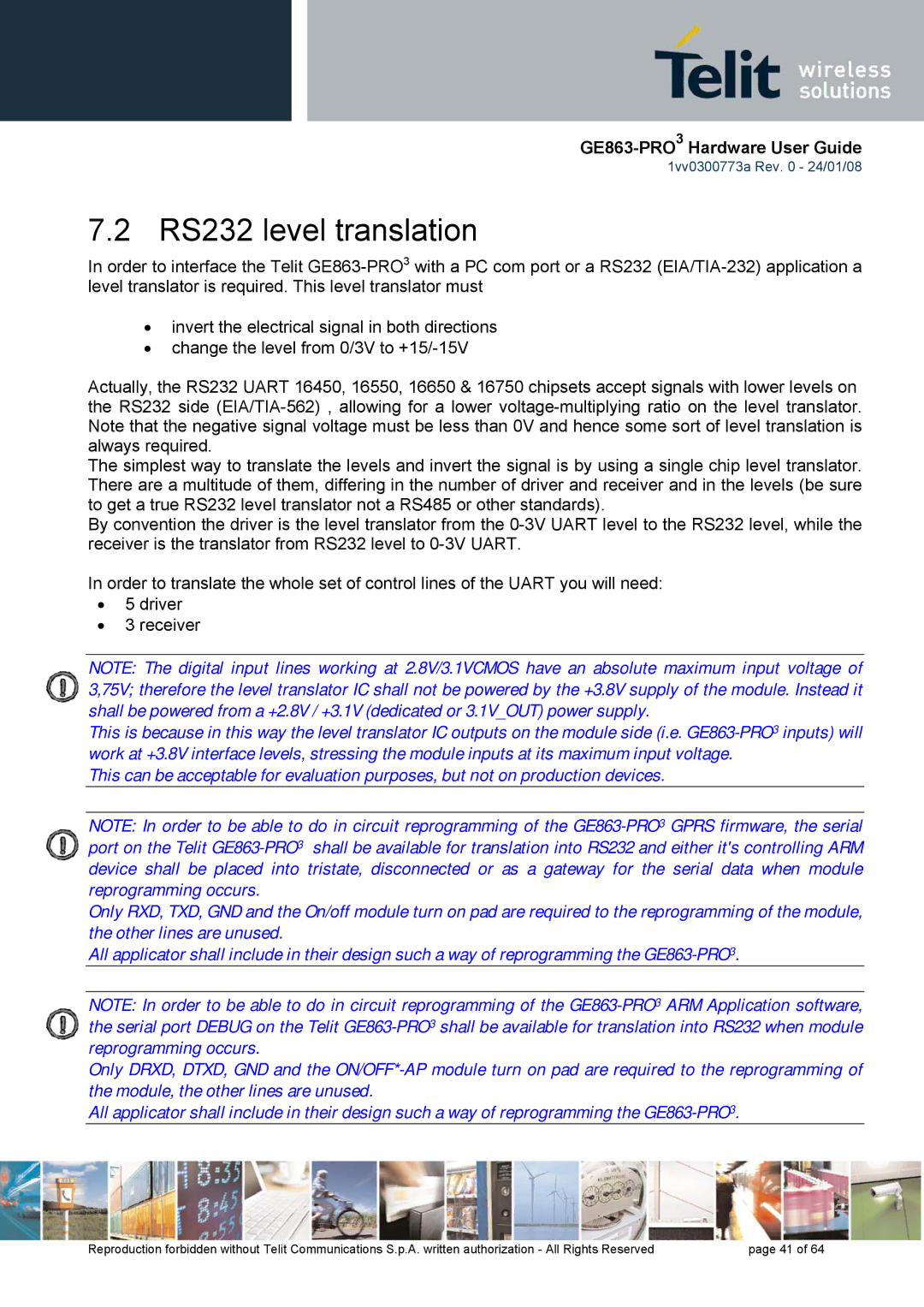1vv0300773a specifications
Telit Wireless Solutions 1VV0300773A is an advanced cellular module specifically designed for a wide range of IoT applications. This module is part of Telit’s extensive portfolio, which is renowned for its reliability and innovation in the wireless communication space. The 1VV0300773A module stands out due to its compact design and robust performance, making it an ideal choice for developers looking to integrate cellular connectivity into their projects.One of the main features of the 1VV0300773A is its support for multiple communication protocols, which enhances its versatility. The module is designed to support various LTE CAT M1 and NB-IoT networks. These technologies are critical for low-power wide-area network (LPWAN) applications, allowing devices to stay connected over long distances while consuming minimal energy. This is particularly beneficial for battery-operated devices in sectors like smart agriculture, smart cities, and industrial IoT.
The module is equipped with a powerful ARM Cortex-M3 processor, which enables efficient data processing and facilitates complex computations required for many IoT applications. Additionally, it features a comprehensive set of interfaces, including UART, GPIO, and I2C, enabling easy integration with various sensors and peripherals. This modularity ensures that developers can customize their applications based on specific business needs.
Security is another crucial aspect of the 1VV0300773A module. Telit incorporates advanced security features including secure boot, data encryption, and a secure element, ensuring that data transmitted over cellular networks is protected against unauthorized access. This commitment to security is vital in today’s increasingly connected world, where data privacy is a top concern.
Furthermore, the 1VV0300773A module supports extensive over-the-air firmware updates, allowing manufacturers to deploy updates and enhancements seamlessly. This capability extends the lifecycle of devices in the field and ensures that they can adapt to new requirements and security standards over time.
In summary, Telit Wireless Solutions 1VV0300773A offers a blend of advanced features, robust technologies, and essential characteristics tailored for the rapidly evolving IoT landscape. Its combination of multi-network support, secure communication, and efficient processing makes it a standout choice for developers and enterprises looking to enhance their connectivity solutions.

